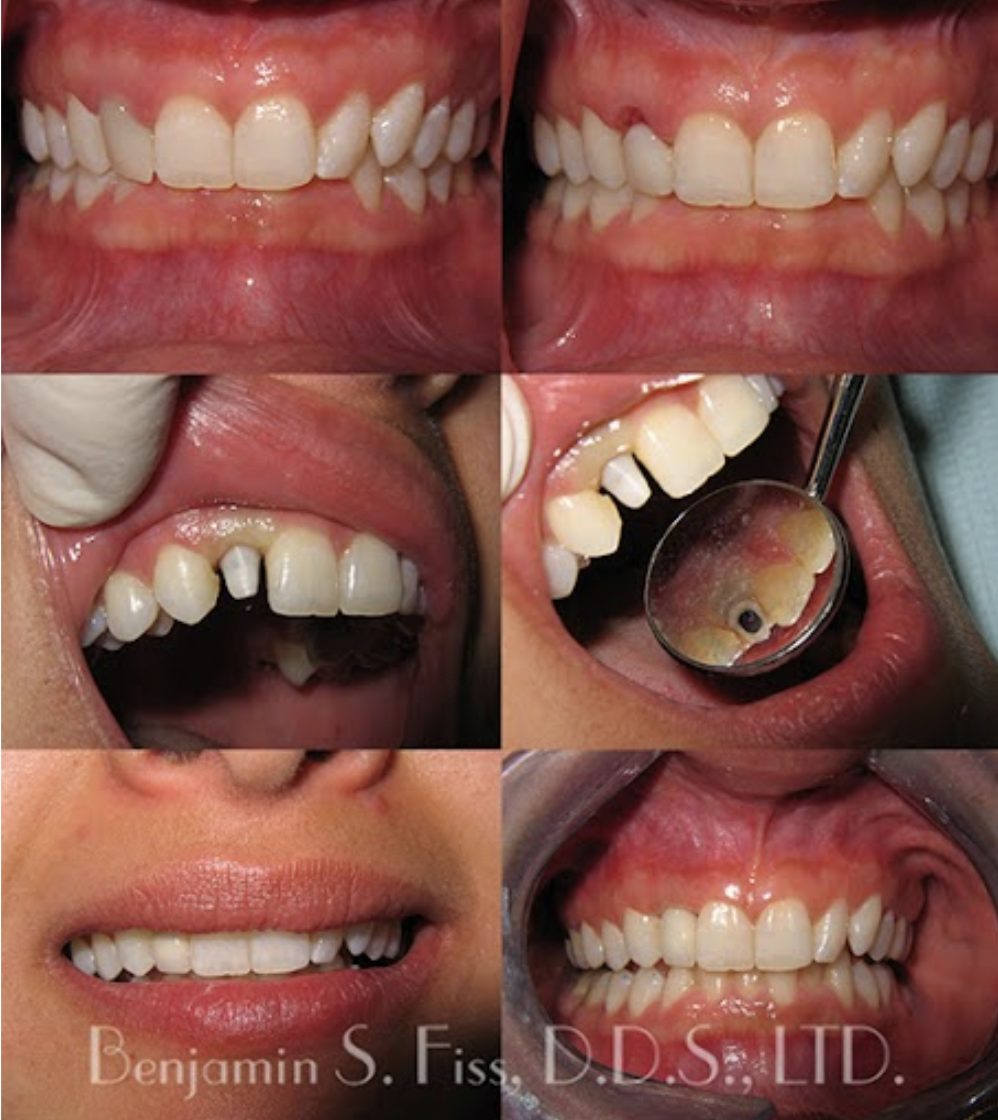Do I Need Dental Implants or Bridges?
4 Minute Read:
Losing one or more teeth causes both aesthetic and functional problems. Men and women facing this situation have several options to restore their lost tooth or teeth. Two of the most common include dental implants and dental bridges.
Both of these solutions fill the “hole” in the mouth where the missing tooth is, restoring aesthetic and functional health.

However, these tooth replacement options are very different. Before deciding which treatment option may be right for you, it is important to understand what they are and how they differ from one another.
How Does a Dental Implant Restore My Missing Tooth?
A dental implant is an artificial tooth root (usually made from titanium) that is inserted and secured to the jawbone by an oral surgeon. Once the implant(s) fuses to the jawbone, Dr. Fiss can build on that implant, fabricating a custom abutment and permanent crown. The all porcelain implant crown restores a natural aesthetic and acts and functions just like a natural tooth.
With dental implants, patients can floss in between their teeth as they would their natural teeth and will often not need to change their oral hygiene practices or dietary habits.
Dental implants are considered a permanent solution for a missing tooth or teeth. That being said, patients must maintain good oral health practices, including routine visits to their dentist.
Dental implants can replace one or more teeth. The All-on-4 treatment can replace all of your teeth in the upper or lower arches using only four implants .
When Are Dental Implants Best?
Dental implants are best for patients who have lost one or more teeth and are interested in a more permanent fix to their lost teeth.
Dental implants are often the first choice for tooth replacement due to their strength. Dental implants last longer than many other tooth replacement options and help reduce the risk of further jawbone degeneration, which often occurs following the loss of a tooth. Jawbone loss occurs when there is no longer a tooth root present. Since a dental implant is an artificial tooth root, it keeps the bone healthier.

How Do Dental Bridges Work?
Like implants, bridges fill the gap caused by a missing tooth. While dental implants can be used to replace one tooth, multiple teeth, or all of your teeth, dental bridges are commonly used to replace a single tooth or two adjacent teeth (although some bridges can be larger — up to four teeth or more).
A bridge secures an artificial crown (or crowns) — known as pontics — to the adjacent teeth in one piece. To place a bridge, the two teeth on the sides of the gap are filed down and prepared for a crown. This allows the bridge system to fit over the filed-down teeth and the gap in between.
Unlike single dental implants, you will not be able to floss between the teeth in the bridge (as they are attached); however, you will be asked to use a special type of floss to clean beneath the bridge.
Generally, the greater the number of missing teeth, the weaker a bridge will be since it is still only supported by the two adjacent teeth.
When Are Dental Bridges Best?
Dental bridges are a great solution for patients who are not candidates for dental implants (for whatever reason). Fixed bridgework is an essentially permanent solution (as long as good dental hygiene and care are maintained).
Dental bridges work best for patients who have lost one or several teeth in a row. However, because a bridge does not fill the tooth root, there is the possibility that further jawbone deterioration can occur.
That being said, a bridge may be a good alternative treatment if your jawbone is too fragile to support the titanium rods of a dental implant.
Dental bridges are also better for many patients who are concerned about surgery. Implanting the titanium root of a dental implant is a surgical operation. Dental bridges can be placed without the need for invasive surgery.
Instead, local anesthesia can be used to numb your mouth while excess enamel is removed and the bridge is emplaced.
Additionally, dental bridges are considered to be a more cost-effective option compared to dental implants.
Do You Want to Learn More About Dental Implants and Bridges?
If you want to learn more about your tooth replacement options, schedule an appointment with Dr. Fiss as soon as possible. He will be happy to explain your options and provide a recommendation based on his examination. Call (312) 642-6631 or fill out this online form to schedule your appointment today.